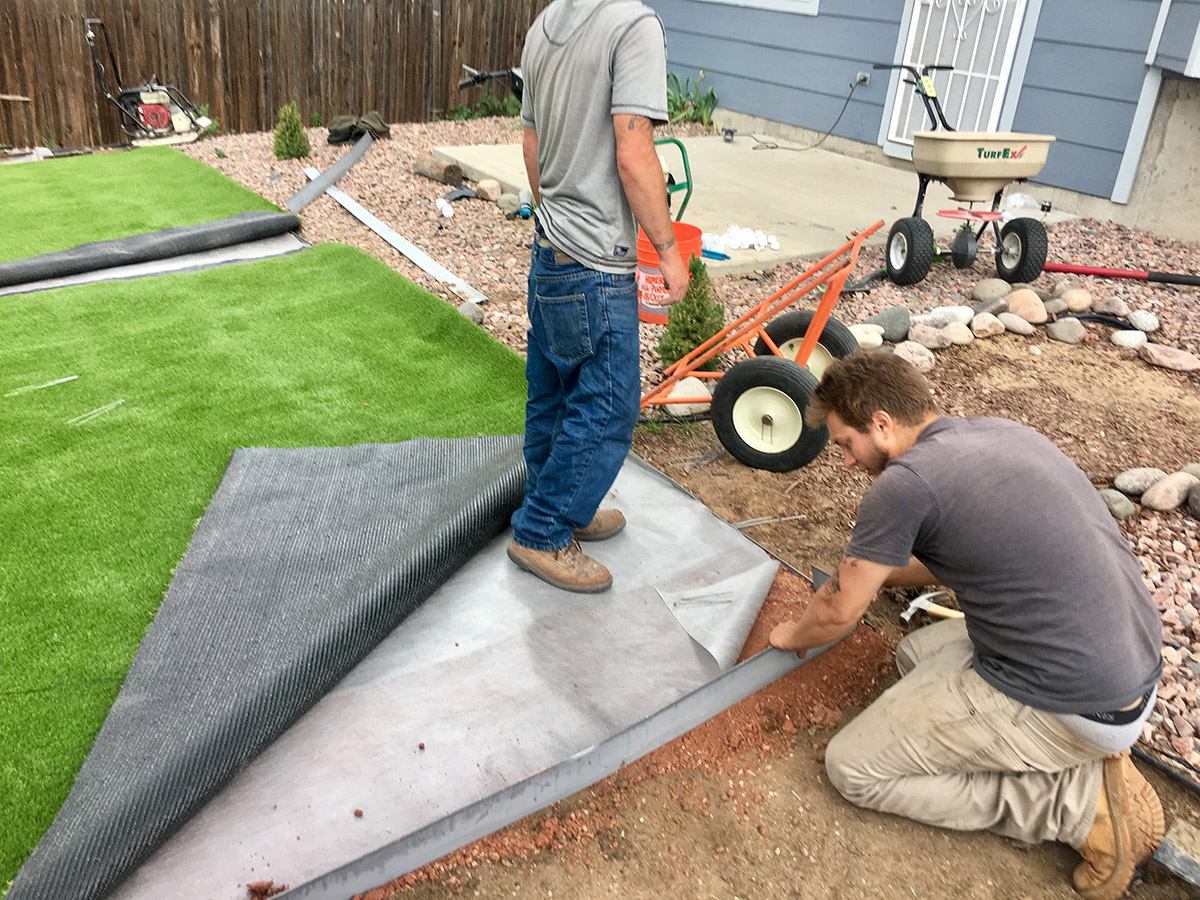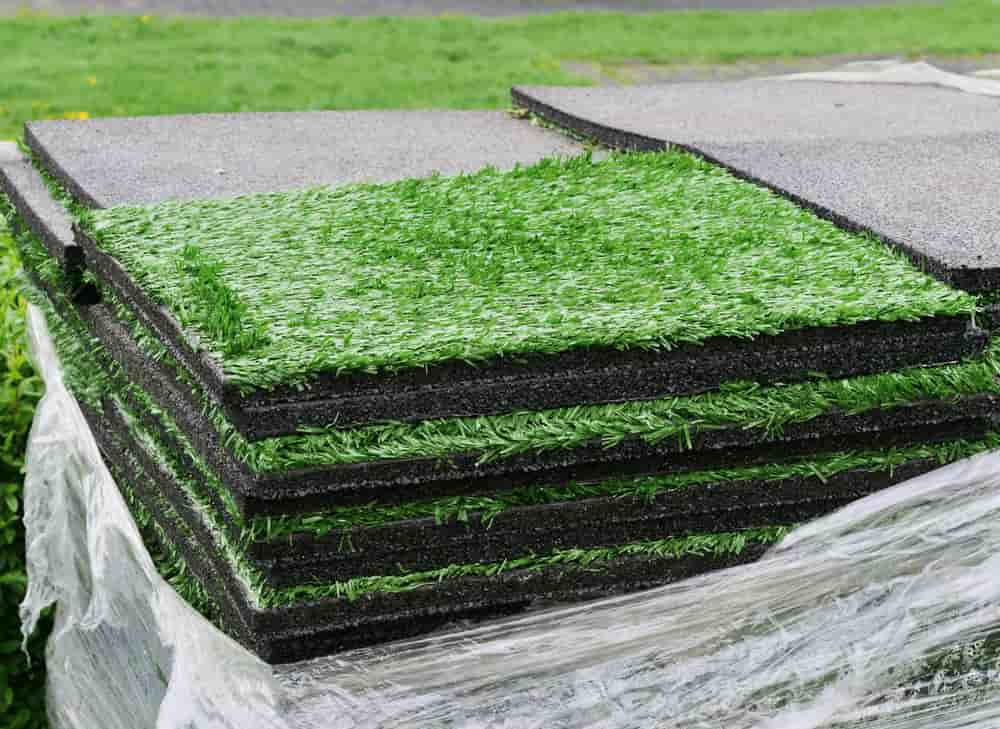See Why Homeowners Prefer Artificial Turf for Sustainable Landscaping Practices
As house owners significantly focus on sustainability in landscaping, synthetic grass has actually arised as a compelling choice to standard grass. Its ability to conserve water, minimize upkeep efforts, and decrease ecological impact placements it as a practical selection for those seeking eco-friendly services. The visual charm and flexibility of synthetic turf cater to varied style preferences. However, the implications of this change expand past mere convenience and aesthetic appeals, triggering a closer exam of exactly how these options influence more comprehensive ecological outcomes. What stays to be explored is the complete extent of benefits that synthetic grass can offer to home owners and the atmosphere alike.
Water Conservation Benefits
One of one of the most substantial advantages of synthetic grass is its function in water conservation. Standard yard lawns need considerable quantities of water to keep their lush look, frequently causing overuse of neighborhood water sources, especially in arid regions. In contrast, synthetic grass eliminates this demand completely, as it does not need watering. This not just conserves water but also decreases the stress on local water supply, especially throughout dry spell problems.
In addition, the installment of artificial lawn can add to an extra lasting landscape. House owners can substantially reduce their water expenses, allowing for reallocation of resources to various other ecological efforts or household usages. In addition, synthetic grass is developed to endure various weather problems without the requirement for additional watering, making it an optimal choice for areas dealing with water scarcity.
The ecological benefits extend past immediate water financial savings. By lowering water usage, artificial lawn assists to mitigate the influences of climate adjustment, protecting vital ecosystems that are intimidated by excessive water removal. As sustainable landscape design practices obtain traction, fabricated turf arises as an accountable selection for property owners looking for to create environmentally friendly exterior rooms.
Lowered Upkeep Initiatives
Synthetic grass significantly minimizes maintenance efforts contrasted to traditional yard lawns. With fabricated grass, house owners can get rid of the time-consuming tasks connected with all-natural landscape design, such as mowing, fertilizing, and weeding. This not only saves beneficial time but likewise minimizes physical labor, making grass care easily accessible for people of all ages.
Traditional lawns call for constant cutting to preserve an aesthetically pleasing elevation, whereas man-made lawn stays constantly lush without the need for reducing. In addition, house owners no longer need to use plant foods or chemicals, which are frequently required to maintain natural grass healthy and balanced.
Furthermore, artificial lawn is sturdy and durable, requiring marginal maintenance beyond periodic brushing and washing to remove debris. This convenience of maintenance permits homeowners to appreciate their outdoor spaces without the consistent worry of maintenance, supplying more time for recreation and family activities. Eventually, the minimized maintenance initiatives related to synthetic grass make it an attractive alternative for those seeking a low-maintenance, visually appealing landscape.

Ecological Effect Decrease
There is a growing acknowledgment of the environmental advantages related to synthetic grass, especially in regards to water conservation and lowered chemical usage. Typical lawns call for significant quantities of water, especially in drought-prone regions, leading to boosted stress on neighborhood water resources. On the other hand, artificial grass gets rid of the demand for watering, considerably lowering water usage and advertising sustainability.
Furthermore, conventional lawn maintenance frequently involves the application of pesticides, fertilizers, and herbicides, which can add to dirt and water pollution. Synthetic grass mitigates this ecological hazard by needing marginal upkeep and basically eliminating the requirement for dangerous chemicals. This not just enhances soil health and wellness yet also protects neighborhood ecological communities from poisonous runoff.
In addition, the manufacturing of all-natural grass yards typically involves using nonrenewable fuel sources for mowing and landscape design equipment, further adding to greenhouse gas exhausts. By selecting synthetic grass, house owners can dramatically reduce their why not try these out carbon footprint connected with lawn care activities.
Aesthetic Charm and Flexibility
In enhancement to its environmental benefits, synthetic grass uses significant visual allure and flexibility for landscape design. Homeowners can accomplish a lavish, green appearance year-round, removing the seasonal fluctuations frequently associated with natural turf. This regular visual not only enhances the visual charm of a home yet additionally contributes to a polished and well-kept appearance.
Moreover, synthetic grass is offered in a selection of appearances, colors, and styles, permitting for modification to match specific choices and layout motifs - Turf installation phoenix az. Whether made use of in residential yards, business areas, or leisure areas, it can perfectly integrate right into varied landscaping styles, from modern minimal to lavish tropical settings
The versatility of synthetic grass prolongs beyond plain look; it can be set up in various places, consisting of rooftops, patios, and also indoor spaces, creating possibilities for special landscaping remedies. In addition, it appropriates for a series of tasks, from kids's play areas to pet-friendly settings, offering functionality without endangering style.
Inevitably, the aesthetic allure and flexibility of synthetic grass make it an appealing alternative for house owners seeking sustainable landscape design services that do not sacrifice elegance for ecological responsibility.

Long-Term Price Cost Savings
One of the most engaging benefits of artificial turf is its capacity for lasting cost savings. Unlike natural visit this page turf, which calls for normal maintenance-- including mowing, watering, fertilizing, and bug control-- fabricated turf considerably minimizes these recurring expenditures.
In addition, synthetic grass has a life expectancy of 15 to 25 years, relying on its top quality and use. This resilience reduces replacement expenses, making it a much more cost-effective selection in the future. In addition, the first financial investment in artificial lawn can often be recouped through the savings accrued with time.
While the upfront cost might seem higher contrasted to turf setup, the advancing savings from reduced upkeep and water usage typically outweigh these preliminary expenditures. Ultimately, the fostering of synthetic grass not only advertises a sustainable landscaping remedy however also offers home owners an economically savvy alternative that lines up with long-term budgeting objectives.
Conclusion
Man-made grass arises as an engaging option for sustainable landscaping, supplying considerable benefits in water conservation, reduced upkeep efforts, and reduced ecological impact. As neighborhoods increasingly focus on ecologically friendly practices, the adoption of man-made turf stands for a dynamic action towards achieving durable and lasting landscapes.
Furthermore, synthetic lawn is made to stand up to various weather conditions without the demand for supplementary watering, making it an ideal option for regions dealing with water scarcity. (Turf installation phoenix az)

Fabricated turf arises as an engaging choice for sustainable landscape design, offering substantial benefits in water conservation, decreased maintenance efforts, and reduced environmental influence.